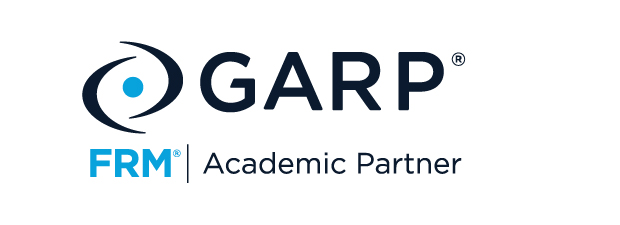Master of Financial Data Analytics (MFDA)

The MFDA aims to train highly qualified finance professionals with the computational skills essential for success in today's ever-changing financial markets. The program is the first of its kind in Canada, combining finance, information technology, and data analytics. Students will gain a fundamental understanding of how AI programming and applications play an integral role in today's economy.
There is an immense amount of data created every day, and the financial industry has benefited the most from data analytics. Banking and financial markets use information and analytics in creating a competitive advantage for their organizations. The need for professionals who can combine their finance and market expertise while supporting these emerging technologies is growing. Graduates of the MFDA will be trained in how to analyze financial data with data analytic skills including AI programming and applications.
Applicants to the MFDA can be from a variety of educational backgrounds, from business, economics and finance, to mathematics, computer science, information technology and other quantitative areas.
MFDA is a GARP Academic Partner; the program curriculum equips students with the required knowledge to approach Part I Exam of the Financial Risk Manager (FRM) professional certification.

How to apply
Tours and Events
Admission Requirements
Grad Guidebook
- Program Schedule and Format
- Admission Requirements
- Tuition
- Program Faculty
- Curriculum and Courses
- Finance Laboratory
- Professional designations
What are the study requirements of the program? |
|
What are the start dates for the program? |
September and January |
What is the delivery method? |
In person |
What is the application process? |
|
Is this a STEM program? |
Yes, the Master of Financial Data Analytics (MFDA) is a STEM program. The Classification of Instructional Programs (CIP) Canada for the program is 307104 – Financial Analytics. |
In addition to the general admission requirements for graduate studies, MFDA applicants must meet the following program-specific requirements:
- While applicants may hold any four-year undergraduate degree (or its 3-year equivalent from a recognized institution in countries where it is the accepted practice), preference is given to applicants whose undergraduate degree is in the field of business, economics, finance, information technology, computer science, modelling and computer science, engineering, mathematics, statistics, physics, actuarial science, or other quantitative fields.
- While not required, GMAT/GRE/CFA Level 1 may be recommended to strengthen your application or in lieu of GPA requirement.
- A statistics course is required. Linear algebra and calculus are highly recommended.
- If applicable, a minimum score of 7 on the IELTS or 100 on the TOEFL. (Note that these English language proficiency scores are slightly higher than those required for some other graduate programs.) Visit the English language proficiency section of this calendar for additional details.
- There may be an interview for applicants prior to admission.
Please refer to tuition estimates from the School of Graduate and Postdoctoral Studies.
905.721.8668 ext. 6209
Fees, funding, and general grad finance questions: gradfinance@ontariotechu.ca
Inquiries about scholarships and awards: gradscholarships@ontariotechu.ca
Carolyn McGregor AM
Dean
Information Systems
Bin Chang
Finance
Karolina Krystyniak
Finance
Amir Rastpour
Operations
Fletcher Lu
Information Technology
Miguel Vargas Martin
Networking and IT Security
Kamal Smimou
Finance
Xinyao (Joseph) Zhou
Finance
Julia (Hui) Zhu
Finance
Chen Shen
Finance
Amin Ibrahim
Amirmohsen Golmohammadi
-
MFDA 5100G - Financial Management
This introductory finance course provides students with a framework to analyze the individual and corporate investment and financing decisions. We will cover topics such as types of business organizations, financial statements, time value of money, the valuation of individual securities such as stocks and bonds, relationship between return and risk, capital investments undertaken by corporations, corporate finance policies, and ethical and professional standards.
-
MFDA 5200G - Investments
This course offers a broad overview of key issues in a dynamic world of investing. We will examine how individual investors choose among various investment alternatives by understanding the risk and return relationship for individual securities as well as the principles of portfolio theory. We will discuss valuation and return patterns of equities and fixed income instruments. Students will learn about market efficiency, active portfolio management and behavioural finance. The course is in line with the CFA curriculum requirements on portfolio management and asset valuation.
-
MFDA 5300G - Financial Derivatives Securities
This course provides an advanced overview to financial derivatives and their application in risk management and investment. The main focus is on learning mechanisms, valuations, and application strategies of popular derivatives. By the end of this course, students will be able to design, price and apply custom-made derivatives to special investment and hedging needs. Business Analytics and Financial Management are prerequisites. Strong knowledge of calculus and statistics is highly recommended.
-
MFDA 5400G - Financial Econometrics
The course covers the econometric methods as applied to finance, in particular financial security analysis, risk and portfolio management. It teaches students econometric theories, empirical methods, and gives the students experience in estimating econometric models with financial data. Students will use professional financial databases to obtain financial data and statistical programming software for empirical research. The course is in line with the CFA curriculum requirements on Quantitative methods in Finance.
-
MFDA 5500G - Financial Risk Management
This course introduces the main components of measuring and managing financial risk in financial services industry. It covers the foundation, valuation, and risk models. Students will use WRDS, Bloomberg Terminals, DataStream, and other data sources and programming software to apply risk modelling and management skills. By taking this course, the students will master skills and knowledge needed to anticipate and respond to critical issues in financial risk management and gain an edge in their career and professional development. The course is in line with the Financial Risk Manager (FRM) curriculum requirements on valuation and risk models.
-
MBAI 5100G - Business Analytics
This course will provide a coverage of concepts and tools used in different stages of a data analytics project, including problem definition, data collection and preparation, data analysis, and knowledge transfer. Statistical and other analytical tools such as data mining, machine learning, social network analytics, text mining and their application to business will be explored.
In the current business world, data is a crucial valuable asset owned companies. It is vital for businesses to be able to effectively and efficiently define their problems, collect required data, examine the data, and communicate this information in an appropriate manner to decision makers. Given the massive amount of data available and constant technological advancements in the field of data analytics, it is crucial that students gain skills required to tackle these data-related problems. This course will provide hands-on training for learning these sought-after skills. -
MBAI 5300G - Programming and Data Processing
The first part of the course studies data processing using the following Python libraries: Pandas, Matplotlib, NumPy, SciPy, and others. Jupyter notebooks will be used for visualization. In process, the course introduces Calculus and Statistics for machine learning. The second part of the course studies natural language processing techniques, network analysis, web log data analysis, and data integration techniques including data Wrangling.
-
MBAI 5310G - Artificial Intelligence Programming
Students will learn to program a computer system to make predictions on, classify or cluster data that the system has never seen before. Topics include theory and practice of supervised and unsupervised learning such as reinforcement learning covering well-known algorithms such as linear regression, Naive Bayes, support vector machines, ensemble methods, K-means, and convolutional and recurrent neural networks. The course uses the Python programming language with TensorFlow and Keras.
- Bloomberg terminal
- IBES
- SDC
- S&P Capital IQ
- Thomson Reuters Datastream
- Thomson Reuters tick history
- LSEG Workspace (ex Refinitiv Workspace)
LEARN MORE ABOUT THE FINANCE LAB HERE
The Master of Financial Data Analytics (MFDA) will prepare students for the Part I Exam of the Financial Risk Manager (FRM) professional certification.
Recognized in every major global market, the FRM is the leading certification for Risk Managers. Earning your FRM proves your knowledge and skills are up to the latest international standards.

" GARP is very pleased to welcome Ontario Tech to the GARP Partnership for Risk Education. The Master of Financial Data Analytics offered by the Faculty of Business and Information Technology is a dynamic, rigorous program. Its interdisciplinary nature affords students a strong theoretical background in the principles of finance, as well as the opportunity to enhance their data analytic skills. Graduates of this program will be well-positioned to pursue the FRM designation and to assume strategic roles within the global risk management profession."
William May, Global Head of Certifications and Educational Programs – GARP
FAQ
-
Key Graduate Resources
Graduate Studies Forms
- Add a course outside your program
- Change student status
- Request transfer credits
- Access all Graduate Studies forms
Important Academic Dates
- Add/drop deadlines
- Fee deadlines
- Program change deadlines
- Graduate Important Dates
Finances
- Tuition & fee structure
- Scholarships
- Student funding opportunities
- Graduate Student Finances
Accessibility
- Student Accessibility Services
- Start with an Intake
Academic integrity and student conduct
-
Course Registration & Degree Requirements
Registration through MyOntarioTech
- Log in → Current Students → Graduate Students → My Academics → Registration
- Self-service platform for all graduate students
Graduate Academic Calendar
- Degree requirements, key dates, regulations, program details, and course descriptions
- Even if a program map is shared, the Calendar takes precedence
- Graduate Calendar Home
- MBAI Program Page
- MFDA Program Page
-
Practical Tips
Getting Around: Transit & U-Pass
- Durham Region Transit (DRT) provides reliable service to campus
- Ontario Tech & Durham College share a bus loop at the main entrance of DC
- U-Pass (student ID card) gives full-time students unlimited transit each semester (included in ancillary fees)
Food Services: multiple on-campus options
Recreation & Wellness: access facilities at Campus Recreation Centre -
International Students
Resources on the Website
- Pre-arrival support: visas, housing, orientation
- Post-arrival services: academics, health, wellness, involvement
- Immigration help: study/work permits, PR, SIN
- Family resources: daycare, EAL programs, spousal work permits
- Advising & appointments: international student advisors
Contact Advising

